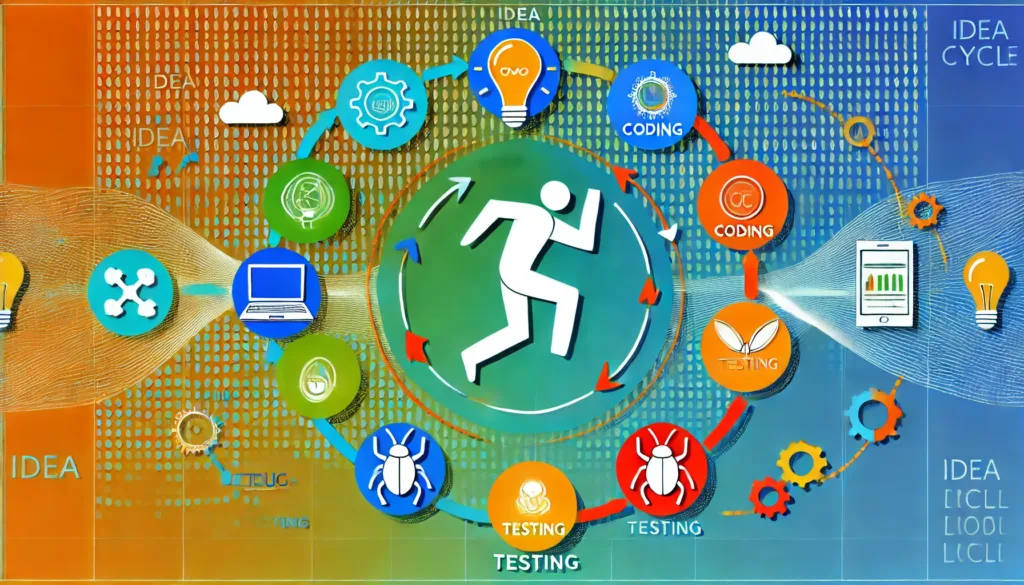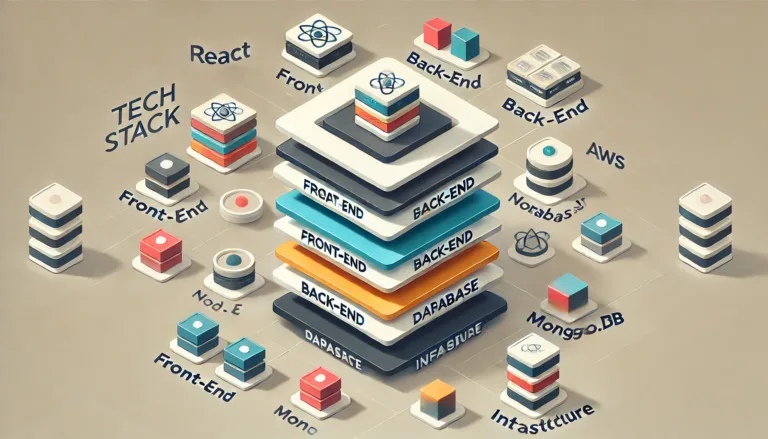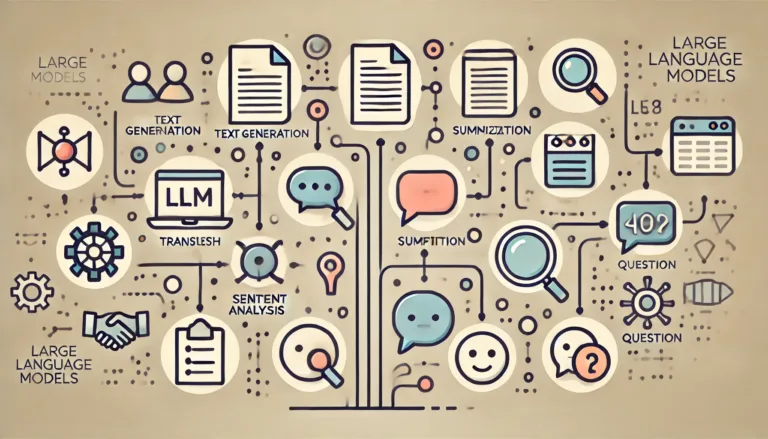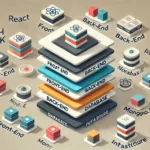Introduction
Is coding still worth learning in 2024? This question has become increasingly pressing as advancements in artificial intelligence (AI) and automation reshape the tech landscape. As new tools and technologies emerge, the role of traditional coding is being scrutinized. Some argue that AI might make coding skills obsolete, while others believe it will only elevate the importance of technical expertise.
The reality is far more nuanced. Today, coding is not just about building software—it’s about creating innovative solutions, understanding complex systems, and communicating with machines in a language they understand. This makes coding a core skill for navigating a world where technology is deeply intertwined with nearly every industry.
In this blog, we’ll dive deep into the current demand for coding skills, examine the impact of AI on coding careers, highlight the benefits of learning to code, and address the challenges that aspiring developers might face. By the end, we’ll provide a clear perspective on whether coding remains a valuable investment of time and effort in 2024.
The Current Demand for Coding Skills
Job Market Trends
The demand for coding skills remains strong, despite the rapid evolution of technology. According to the U.S. Bureau of Labor Statistics, employment for software developers is projected to grow by a staggering 26% from 2022 to 2031. This growth rate is significantly higher than the average for all occupations, which stands at just 3%. In an era where many jobs are being automated, coding continues to offer a relatively stable and lucrative career path.
High-demand roles like software engineers, data scientists, and machine learning specialists are at the forefront of this growth. The tech industry is not the only sector benefiting—fields such as healthcare, finance, and manufacturing are also actively seeking professionals with coding expertise to drive digital transformation. These industries rely on skilled developers to create software solutions, manage data systems, and enhance automation capabilities, making coding a versatile and in-demand skill set.

Salary Potential
When it comes to earning potential, coding offers substantial financial rewards. The average salary for software developers in the U.S. is approximately $95,645, significantly higher than the national median household income. Compared to other professions, coding stands out for its competitive pay even at entry-level positions. For those with specialized skills in areas like data science or cybersecurity, salaries can easily exceed six figures, making it a compelling career choice for individuals seeking high earning potential.
Beyond the immediate financial benefits, coding also offers opportunities for career advancement and specialization, which can lead to even higher earnings. The ability to continuously learn new languages and frameworks allows coders to stay relevant and climb the professional ladder, making coding not just a job, but a career with significant long-term value.

The Impact of AI on Coding Careers
With the rapid integration of artificial intelligence (AI) into software development, it’s natural to question whether coding as a skill is becoming redundant. While AI has undoubtedly changed the coding landscape, the outlook is not one of replacement but rather transformation. The use of AI tools is reshaping how coders work, streamlining processes, and creating new opportunities for those willing to adapt and upskill.
AI as an Assistant, Not a Replacement
AI has made significant strides in automating repetitive coding tasks, such as debugging, code refactoring, and generating boilerplate code. Tools like GitHub Copilot, which leverages OpenAI’s models, can suggest entire code blocks, assist with syntax corrections, and even provide alternative solutions to common coding problems. This has significantly improved productivity, allowing developers to focus on higher-level problem-solving and more creative aspects of software development.
However, despite its capabilities, AI is far from replacing human coders. For complex problem-solving, code quality, and security, human oversight remains crucial. AI-generated code often lacks the contextual understanding needed to handle edge cases, optimize performance, or anticipate the unintended consequences that arise in real-world applications. Security vulnerabilities, in particular, require a deep understanding of system architecture and the ability to foresee how code interacts within larger ecosystems—something current AI models cannot fully achieve. Thus, while AI can be a powerful assistant, human expertise is indispensable for ensuring robust and reliable software.
Evolving Roles of Coders
As AI tools become more integrated into the software development process, the responsibilities of coders are shifting. Rather than spending time on routine coding tasks, developers are moving toward roles that emphasize complex system design, architecture, and human-AI collaboration. This evolution is giving rise to a new wave of hybrid roles that combine coding proficiency with AI expertise.
For example, positions like AI-Enhanced Software Engineer or Machine Learning Operations (MLOps) Specialist are emerging, where coders need to understand both software development and machine learning workflows. Similarly, AI Code Auditor roles are being created to review and validate AI-generated code, ensuring it meets quality, security, and ethical standards. These positions require a unique blend of coding skills and an understanding of how AI systems operate, highlighting that coding is not becoming obsolete—instead, it’s adapting and expanding to include new responsibilities and opportunities in an AI-driven world.
By embracing these evolving roles, coders can stay ahead of the curve, leveraging AI as a tool to enhance their capabilities and redefine their professional trajectories.

Benefits of Learning to Code
Despite the rapidly changing tech landscape, learning to code remains a worthwhile investment due to the myriad benefits it offers, both within and beyond the tech industry. Coding is not just about writing software; it’s a way of thinking that sharpens problem-solving abilities, enhances analytical skills, and opens up diverse career opportunities. Here are some of the key advantages that make coding a valuable skill to acquire in 2024.
Problem-Solving and Analytical Skills
Coding is fundamentally a problem-solving exercise. When you write code, you’re breaking down complex problems into smaller, more manageable components, using logical reasoning to create solutions step-by-step. This process requires rigorous analytical thinking and precision, as even small errors can disrupt the entire program. As a result, coding sharpens your ability to approach problems methodically, think critically, and develop strategies for troubleshooting issues.
These problem-solving and analytical skills are valuable far beyond tech roles. They can be applied in fields like finance, healthcare, and engineering, where logical thinking and strategic planning are essential. Even in everyday scenarios, coding skills foster a mindset that thrives on dissecting challenges, understanding underlying patterns, and coming up with effective solutions. This makes individuals who learn to code more adaptable, resilient, and capable of tackling complex problems in a variety of settings.
Transferable Skills
Learning to code equips individuals with a versatile skill set that extends beyond traditional coding careers. Understanding how software works and how to build digital tools can benefit professionals in non-technical fields as well. For instance:
- Project Management: Coding knowledge allows project managers to better communicate with development teams, understand technical constraints, and set realistic goals for software projects.
- Digital Marketing: Marketers with basic coding skills can implement tracking codes, customize websites, and optimize digital campaigns more effectively.
- Entrepreneurship: Entrepreneurs who can code have the advantage of building their own digital products, testing ideas quickly, and iterating without relying heavily on external technical support.
These transferable skills can enhance one’s competitiveness in the job market, making coding a valuable asset even for those pursuing roles outside of software development.

Flexibility and Remote Opportunities
One of the most attractive aspects of coding careers is the flexibility they offer. Many coding jobs, such as web development, software engineering, and freelance programming, provide the option to work remotely. This flexibility extends beyond location, allowing coders to manage their schedules more independently, maintain a healthier work-life balance, and choose projects that align with their personal interests and professional goals.
In a world where remote work is becoming the norm, coding skills can be a gateway to a career that doesn’t tie you down to a specific geographical location. Whether you want to travel the world while working or simply prefer the comfort of a home office, coding opens up a range of possibilities that traditional office-bound roles often cannot.
Accessibility of Learning Resources
The barriers to learning coding have significantly decreased over the years, making it one of the most accessible skills to acquire today. There are countless online platforms, tutorials, and courses—both free and paid—that cater to a variety of learning preferences and schedules. Popular resources like Codecademy, freeCodeCamp, and Coursera offer structured learning paths for beginners, while platforms like LeetCode and HackerRank provide more advanced problem-solving challenges for experienced programmers.
In addition, many platforms provide interactive coding environments that allow learners to write and run code directly in the browser, eliminating the need for complex software installations. This makes it easy for anyone with an internet connection to start learning. With such a wealth of resources available, learning to code has never been more accessible, affordable, or flexible, allowing aspiring coders to acquire skills at their own pace, no matter where they are.
Challenges of Pursuing Coding in 2024
While coding remains a valuable skill with numerous benefits, it’s essential to acknowledge the challenges associated with pursuing it, especially as we move further into 2024. From the steep learning curve to concerns about market saturation, aspiring coders need to be aware of the potential obstacles they might face. Understanding these challenges can help individuals set realistic expectations and better prepare for their coding journey.
Time and Effort Investment
Mastering coding is not a quick endeavor. It requires a significant investment of time, effort, and patience. Many people underestimate just how complex learning to code can be, particularly for those without a technical background. Achieving proficiency in coding can take months or even years, depending on the learner’s dedication and the depth of knowledge they wish to attain.
Beyond simply understanding syntax and basic programming concepts, true mastery involves developing problem-solving strategies, learning multiple programming languages, and building a solid portfolio through real-world projects. This journey demands perseverance, a willingness to embrace failure, and the motivation to keep learning despite setbacks. As a result, having a genuine passion for programming is crucial. Without it, many aspiring coders may lose interest or burn out before reaching a level of skill that translates into professional opportunities.
For those considering coding purely for financial gains or job security, it’s important to weigh the effort involved against personal interest. Passion for problem-solving and a natural curiosity about technology will be key motivators in overcoming the inevitable frustrations that come with debugging complex code or grasping advanced algorithms.
Market Saturation Concerns
With the explosion of coding bootcamps, online courses, and free resources, the number of people learning to code has surged in recent years. This has led to growing concerns about market saturation, especially for entry-level positions. As more individuals enter the tech field, competition for beginner roles has intensified, making it harder for new coders to stand out.
However, while the increased supply of coding talent has heightened competition, demand for skilled developers still outstrips supply in many areas. The key to overcoming market saturation lies in specialization and differentiation. Coders who go beyond generic skills and focus on niche areas—such as AI development, cybersecurity, or data engineering—are more likely to find opportunities that align with their expertise. Additionally, building a strong portfolio, gaining hands-on experience through internships or freelance projects, and actively participating in tech communities can help new coders differentiate themselves from the competition.
Ultimately, while there are more people learning to code than ever before, the tech industry continues to evolve and expand, creating new opportunities for those who are committed to staying ahead of the curve. The challenge is not simply learning to code, but positioning oneself as a unique and valuable contributor in a crowded field.
Conclusion
As we’ve explored, the question of whether coding is still worth it in 2024 hinges on various factors—the demand for coding skills, the impact of AI, the benefits of learning to code, and the potential challenges in an increasingly competitive field.
The demand for coding skills remains robust, with software developer roles expected to grow by 26% from 2022 to 2031, offering strong job prospects and competitive salaries. While AI is transforming the industry, it is not replacing coders but rather reshaping their roles to focus on more complex problem-solving and system design. Learning to code equips individuals with valuable problem-solving abilities, transferable skills, and flexibility, making it a versatile asset for various career paths.
However, the challenges include a significant investment of time and effort, and growing concerns about market saturation as more people enter the field. Success in coding requires a genuine passion for technology and the ability to continuously learn and adapt.
Is Coding Still Worth It?
Yes, coding is still worth it in 2024—but with a caveat. It’s a path best suited for those who have a true interest in technology and are willing to put in the time to master complex concepts. The landscape is evolving, and success will depend on an individual’s ability to specialize, stay ahead of trends, and leverage their coding skills in unique and innovative ways.
If you’re considering a coding career, take the time to reflect on your personal goals and interests. Do you enjoy problem-solving? Are you excited by the idea of creating digital solutions or working alongside emerging technologies like AI? If so, coding can be a rewarding and dynamic career choice. But if your interest lies more in the promise of high salaries and job security alone, it’s worth considering whether you’re prepared to commit to the intensive learning curve and continuous self-improvement that coding demands.
References and Further Reading
- U.S. Bureau of Labor Statistics. Job Outlook for Software Developers (2022–2031).
- Skillcrush Blog. “Should I Learn to Code in 2024?”.
- Dev.to. “10 Programming Languages Worth Learning in 2024”.
- YouTube: Big Tech Channel. “The Future of Coding and AI: What You Need to Know”.
- Reddit: Learn Programming. “Is Learning to Code Still Worth It?”.
- LinkedIn. “Learning to Code in 2024: Trends and Tips”.
- Kashif Raza. “Is Coding Still Worth Learning in 2024?”.
For those looking to delve deeper, these resources provide additional insights and perspectives on coding in 2024, helping you make an informed decision about whether to embark on or continue your coding journey.
FAQ
1. Is it too late to start learning to code in 2024?
Not at all! While the number of people learning to code has increased, demand for skilled developers is still strong. What’s important is choosing the right niche and continuously building your expertise. Whether you’re a complete beginner or looking to switch careers, 2024 is a great time to start.
2. What programming languages should I focus on?
The best programming language to learn depends on your goals. For web development, JavaScript and Python are excellent starting points. If you’re interested in data science or AI, focus on Python or R. For backend development, Java or C# can be valuable. Choose a language based on the industry and role you’re aiming for.
3. Will AI eventually replace coding jobs?
AI is unlikely to replace coding jobs entirely. Instead, it will change the nature of coding work. AI can automate routine tasks, but human oversight is still needed for complex problem-solving, quality assurance, and innovative development. Coders who learn to work alongside AI will remain in high demand.
4. How can I stand out in a saturated job market?
To stand out, focus on building a strong portfolio, contributing to open-source projects, and gaining hands-on experience. Specializing in emerging areas like AI, cybersecurity, or cloud computing can also set you apart. Networking and staying active in tech communities will further boost your visibility.
5. Can I learn to code part-time while working a full-time job?
Yes, many people successfully learn to code while working full-time. The key is consistency and setting realistic goals. Start with structured online courses that allow for self-paced learning, and dedicate a few hours each week to practice. Building a coding habit over time will gradually lead to proficiency.









